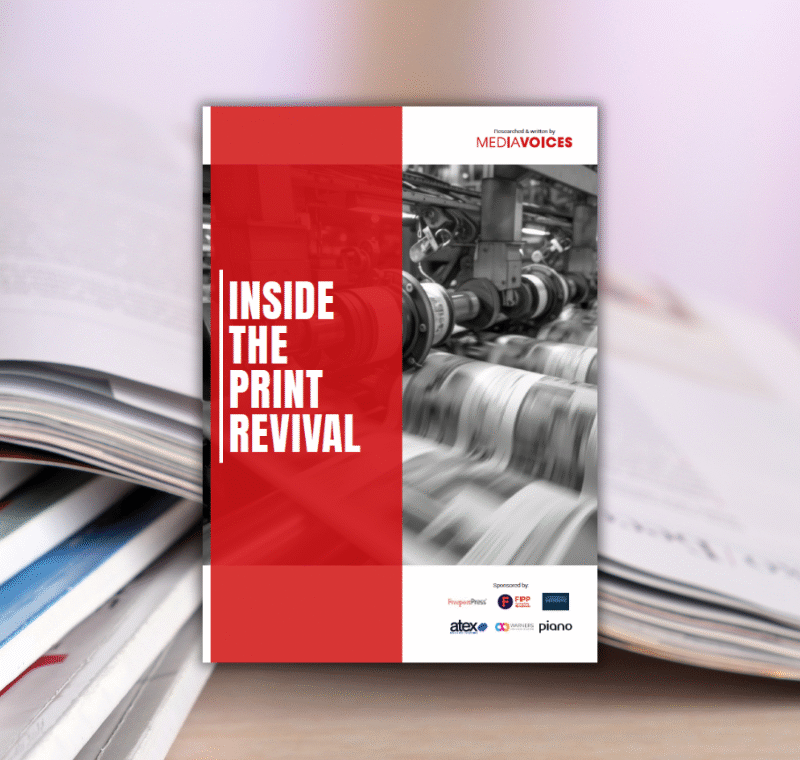[Video] BurdaForward: programmatic selling beats direct sales
This article is reproduced with thanks to Native Advertising Institute, a FIPP member. See the original article here. Jesper Laursen, CEO of Native Advertising Institute, will lead a panel discussion on native advertising at the 41st FIPP World Congress, 9-11 October 2017 in London, the UK. Meet him there.
What is a ‘Goodvertising’ strategy and which results does it create? What are the important KPIs for native advertising? And what are the advantages of programmatic selling?
Those are just some of the questions the Native Advertising Institute asked Kolja Kleist, director of customer and brand management and Sonja Knab, director of research marketing at BurdaForward when they did a keynote at Native Advertising DAYS 2016. Sign up for notifications about this years’ conference here.
Burda is one of the biggest media companies in Germany and in Europe with a variety of print publications and digital brands such as FOCUS Online, HuffingtonPost and The Weather Channel.
The four pillars of the ‘Goodvertising’ strategy
Kolja Kleist: “Our Goodvertising strategy is actually a result of what we’ve been confronted with in the market in the last year. We clearly believe that we totally have to change our view on advertising on publisher sites.
Goodvertising is based on four pillars. First a total rethink of our ad engine and ad model; how we distribute ad inventory, display inventory, getting rid of a lot of ad placements on our sites, getting rid of every disturbing format on our site, investing in smart loading technology in order to increase visibility rates and in order to increase user acceptance.
The second pillar is investing in high-quality editorial content. The third is we believe that the programmatic way of selling ad inventory is far better than a direct sales approach. A lot of publishers are afraid of going this way but if you connect your own data and reach the right person at the right moment with the right message it is part of the Goodvertising strategy.
RELATED: 15 key terms you need to know about programmatic native
And the fourth pillar, which is already responsible for about 30-35 percent of our total revenue, is native advertising. We open our publishing sites for content that is produced for clients and distributed on our sites, but we also want to open our sites for really well-known brands who already have their own storytelling team and give them direct access to our CMS using our surroundings, our trust and credibility.”
Result: A far higher acceptance of advertising
Kolja Kleist: “The results of the Goodvertising strategy so far is that we have a far higher acceptance of advertising on our sites. Secondly we see a pretty stable inventory of advertising slots due to the fact that our content is so good that people scroll down. The ads are only loading when people scroll down, not just loading when they get on the page.
From our market research we know that the acceptance of sponsored content from a company is far higher than display advertising.”
Nearly 65 per cent rate native advertising positively
Sonja Knab: “We do a lot of research on native advertising. We asked over a thousand users what they think about native advertising? Do they like the article? The whole content? And do they accept this kind of advertising?
RELATED: Five takeaways from BurdaForwards native advertising study
We found out that nearly 65 per cent of all users rated native advertising as positive. This is quite a good result especially in comparison with display advertising. One of the key results was also that users recognise native advertising as advertising and like it.
Native advertising has an effect on the brand awareness, on the brand likability and also on the purchase intent
We also do a lot of research studies on the effectiveness of native advertising and we have a database with all our advertising studies. These results show that native advertising has an effect on the brand awareness, on the brand likability and also on the purchase intent.”
Refinancing digital journalism
Kolja Kleist: “What we have been really good at within the last three years is that we’re really fast in changing our organisations and getting rid of old structures because digital is clearly separated from print media.
Although we belong to one of the biggest print media houses in Germany, we’re really focused on a sustainable way to refinance digital journalism and that makes us very agile and very fast in building up new organisations and investing into video for example.”
RELATED: “Clicks and followers are just vanity metrics”
The most important KPIs for native advertising
Sonja Knab: “There is not a quick or easy answer to that because there is exists a lot of native advertising KPIs. For example you have the generated wizards, you have the view time, you have billing models like cost per click or cost per view, you have the advertising enjoyment.
There are a lot of KPIs and they depend on your campaign goal. If you want to push your brand awareness it’s very important that the view time is high, so that the user has an intensive contact with the content and that you reach a lot of people and use social media. If you want to increase the purchase intent it’s also very important that people like the advertisement.”
Jesper Laursen, CEO of Native Advertising Institute, will lead a panel discussion on native advertising at the 41st FIPP World Congress, 9-11 October 2017 in London, the UK. Meet him there.

More like this
Video the “superhero” of content, says Hearst exec
[Video] IAB’s Clare O’Brien: We need algorithms for quality measures
How to create native Facebook content that drives business results
Mashable exec on why branded and editorial content teams should have the same leadership
[Video] LinkedIn exec on how to own a conversation with big rock content









